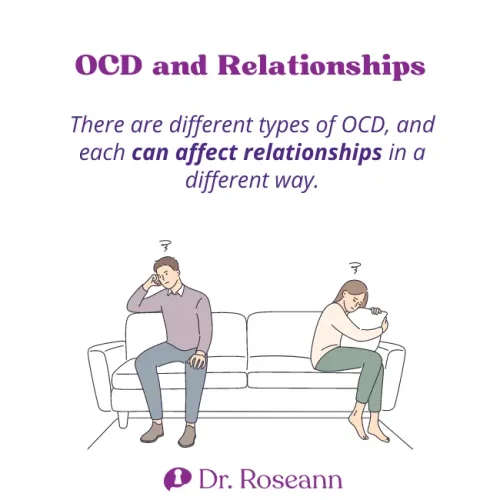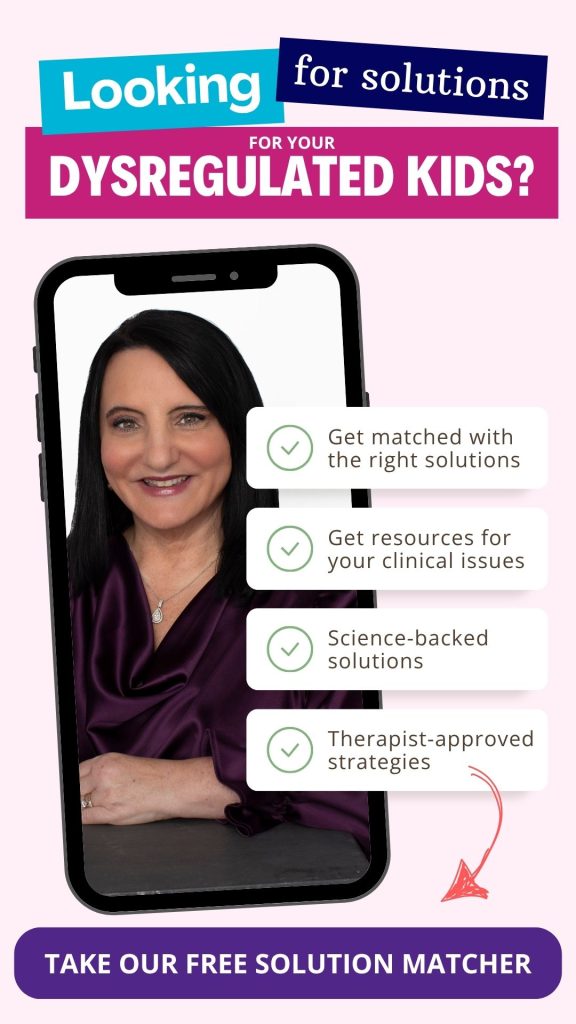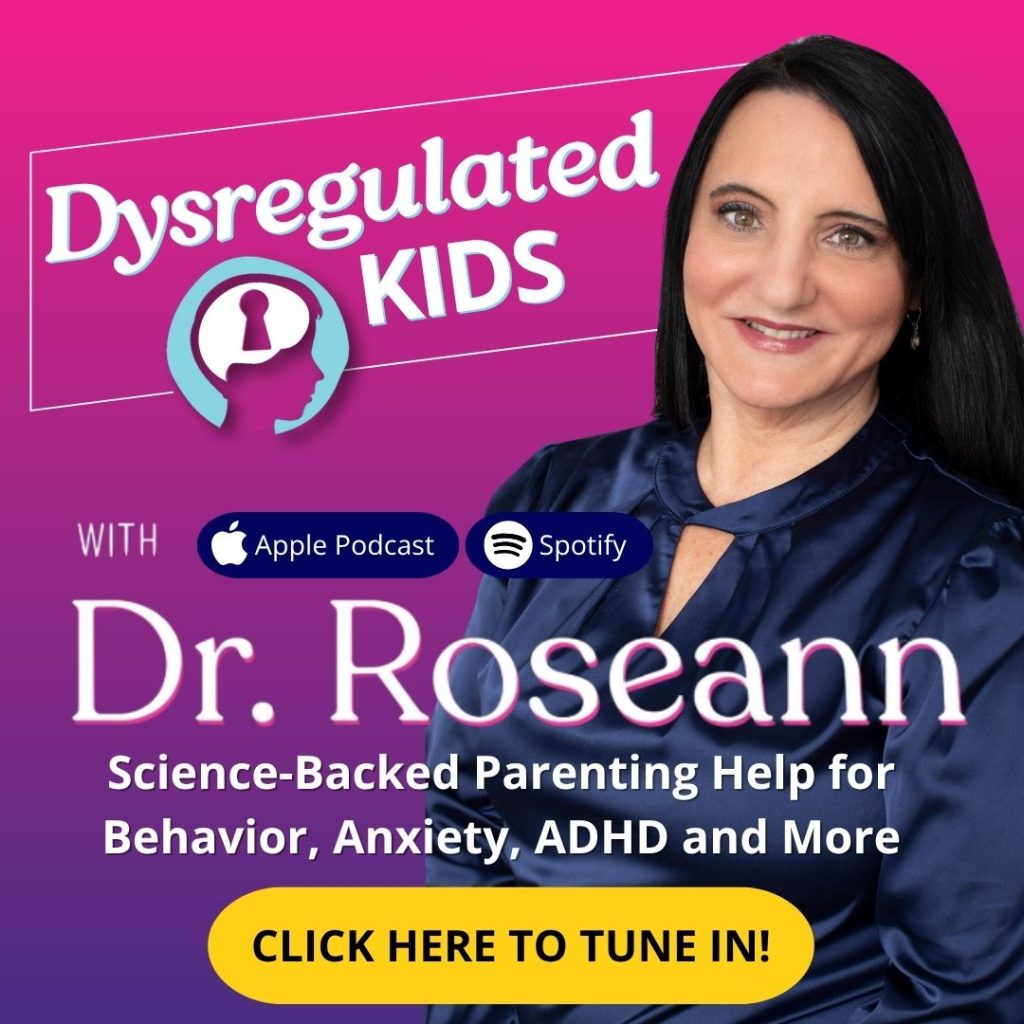Estimated reading time: 6 minutes
Does it ever feel like you’re walking on eggshells—saying or doing just the right thing so your child doesn’t spiral? OCD has a way of quietly hijacking relationships, turning connection into confusion and routines into emotional minefields.
With the right tools, you can break the cycle and bring calm back to your family—without reinforcing OCD’s hold.
How Does Obsessive-Compulsive Disorder (OCD) Show Up in Daily Life?
OCD isn’t just about being neat or liking things “just so.” It’s a mental health condition that shows up in two ways that are driven by fear:
- Obsessions (intrusive, distressing thoughts, images, or urges)
- Compulsions (repetitive behaviors or mental acts done to relieve anxiety or prevent a feared outcome)
Kids with OCD feel intense pressure to “neutralize” a thought or prevent something bad from happening. Unlike the occasional weird thought or urge to double-check, OCD symptoms are time-consuming and disruptive to daily life.
OCD can be tricky to spot in children, especially when:
- They hide rituals out of embarrassment
- Compulsions are mental, like silently counting or replaying situations in their mind
- The classic signs—like handwashing—just aren’t there
One overlooked sign? Emotional intensity and avoidance. Children may:
- React strongly to minor issues
- Avoid situations that trigger fear
- Rely heavily on reassurance to feel safe
When OCD drives behavior, it doesn’t just affect the individual—it touches everyone in the home. Communication becomes strained, routines feel hijacked, and connection can quietly erode under the weight of constant anxiety.
What is the Connection Between OCD and Relationships?

OCD comes in different forms, and each type impacts relationships in unique ways. Some of the most common types include:
- Contamination OCD
- Symmetry or order OCD
- Checking OCD
- Harm OCD
Let’s focus on harm OCD to understand how it can directly affect connections with loved ones.
Harm OCD involves intrusive, unwanted thoughts about causing harm to oneself or others. Kids with harm OCD don’t want to hurt anyone—but their brains tell them to fear these thoughts like they’re dangerous commands.
While most people brush off fleeting violent thoughts, children with harm OCD:
- Can’t let these thoughts go
- Believe they predict something terrible
- Feel overwhelming anxiety because of them
Because of this, they often seek constant reassurance. Even kind, well-meaning answers can accidentally feed the OCD, keeping the cycle going.
To ease their worry, children develop rituals or compulsions like:
- Locking away sharp objects
- Repeatedly checking their behavior
- Avoiding scary movies or media
- Praying or holding onto spiritual items
These rituals bring short bursts of calm, but then anxiety comes back and traps them in a loop of fear and doubt.
Living with someone who struggles with harm OCD can strain family bonds because:
- The constant need for reassurance wears on everyone
- The fear of losing control creates tension
- Ritualized behaviors add confusion and disrupt connection
What is Relationship OCD?
Beyond the common types of OCD, there’s a subtype called Relationship OCD (ROCD)—a form that specifically targets how someone experiences close relationships, especially during early adulthood.
ROCD can create serious strain, sometimes contributing to past relationship struggles or breakups (Doron et al., 2012).
People with ROCD often wrestle with:
- Intense anxiety about their relationship
- Overwhelming fear of abandonment
This leads them to seek constant reassurance from their partner or loved ones. They also obsess over every feeling, intention, or interaction, demanding repeated validation.
This cycle can quickly feel exhausting and frustrating for everyone involved. Because OCD hijacks trust and breeds doubt, relationships can become defined by anxiety and second-guessing rather than connection.

Partners may feel confused or resentful especially if the person with ROCD hasn’t been diagnosed or isn’t receiving treatment. Add in other OCD symptoms—like fears around germs or cleanliness—and expressing love can feel even harder.
Research confirms this struggle. One study found that ROCD symptoms link strongly to relationship dissatisfaction and depression, even more than common OCD symptoms alone (Doron et al., 2016).
So yes—loving someone with OCD can be tough. But understanding what’s really happening can help families and couples find ways forward.
How Does OCD Impact Family Relationships?
OCD doesn’t just affect the individual—it strains family and friendships as loved ones struggle to understand and keep up with exhausting, frustrating rituals.
- Most families don’t get the right kind of OCD education unless they work with trained ERP therapists, which just makes things harder to handle.
- Kids and teens with OCD might also struggle with their chores or responsibilities at home, and that adds extra stress for everyone. It’s a cycle that can deepen anxiety and depression—not just for the child but for the whole family.
- OCD often chips away at self-esteem, leaving children feeling like failures, weighed down by shame, embarrassment, and insecurity (Laving et al., 2023). As social interest declines, withdrawal follows—friends may drift away, and family members might give up trying to reach through the obsessive thoughts.
Isolation isn’t just lonely—it’s a trapdoor to other struggles, like mood disorders that stack on top of everything else. It’s a heavy load that weighs on the whole family’s spirit.
But hey, look at the bright side: with the right support, education, and tools, that cycle can break. Seeing OCD as a shared challenge—not a personal failure—lets space open up for connection and healing.
It starts with calm, kind understanding and grows with a little patience and a lot of persistence. Because when you calm the brain first, you unlock a child’s potential, improve behavior, and boost emotional well-being.
How Do I Help a Loved One with OCD?

OCD can feel overwhelming, but don’t worry—it can be managed and treated. With the right support, kids and teens can build confidence, improve their daily lives, and enjoy healthier relationships.
A licensed mental health professional can craft a plan tailored just for them. Meanwhile, here are some simple ways you can help ease their OCD symptoms.
1. Practice patience and not judgment
- Stay patient and supportive—even when it’s really tough.
- Avoid frustration or anger; they only slow progress.
- Understand OCD behaviors aren’t easy to stop.
- Offer empathy instead of brushing off their pain.
- Resist giving constant reassurance; focus on building coping skills.
2. Connect and understand
- Acknowledge OCD and communicate openly with compassion.
- Help your child distinguish their true thoughts from OCD-driven ones.
- Act as a coach, supporting them through ERP therapy.
- Remember behaviors come from anxiety and fear, not personal choice.
- Keep family close and nurture friendships to prevent isolation.
3. Seek help and support
- Find a qualified therapist for cognitive-behavioral therapy (CBT) or ERP.
- Use meditation, exercise, or hobbies to relieve stress.
- Connect with others facing OCD challenges for shared support.
- Join support groups like It’s Gonna be OK! for information and resources.
4. Encourage and don’t reinforce
- Encourage adherence to professional treatment plans.
- Practice exposure to OCD triggers at home as part of therapy.
- Be patient; progress varies and takes time.
- Avoid comparing your child to others.
- Do not participate in OCD rituals; gradually reduce involvement.
Parent Action Steps
FAQs
Why Is Early Intervention Important for OCD and Relationships?
The earlier OCD is identified and treated, the better the chances for minimizing its impact on relationships and daily life. Early intervention helps reduce family stress, improves emotional regulation, and supports healthy social development.
Can OCD affect how my child connects with siblings or friends?
Yes. OCD can lead to emotional outbursts, withdrawal, or rigid routines that make social interactions difficult, which often isolates kids from their peers or siblings.
Can Relationships Thrive With OCD?
Absolutely. With patience, understanding, and the right tools, OCD doesn’t have to define your relationships. Families and couples can grow closer by learning how to navigate challenges together—turning overwhelm into hope.
Citations
Doron, G., Derby, D. S., Szepsenwol, O., & Talmor, D. (2012). Tainted love: Exploring relationship-centered obsessive compulsive symptoms in two non-clinical cohorts. Journal of Obsessive-Compulsive and Related Disorders, 1(1), 16–24. https://doi.org/10.1016/j.jocrd.2011.11.002
Doron, G., Derby, D., Szepsenwol, O., Nahaloni, E., & Moulding, R. (2016). Relationship Obsessive–Compulsive Disorder: Interference, Symptoms, and Maladaptive Beliefs. Frontiers in Psychiatry, 7. https://doi.org/10.3389/fpsyt.2016.00058
Laving, M., Foroni, F., Ferrari, M., Turner, C., & Yap, K. (2023). The association between OCD and Shame: A systematic review and meta-analysis. The British journal of clinical psychology, 62(1), 28–52. https://doi.org/10.1111/bjc.12392
Always remember… “Calm Brain, Happy Family™”
Disclaimer: This article is not intended to give health advice and it is recommended to consult with a physician before beginning any new wellness regime. *The effectiveness of diagnosis and treatment vary by patient and condition. Dr. Roseann Capanna-Hodge, LLC does not guarantee certain results.
Are you looking for SOLUTIONS for your struggling child or teen?
Dr. Roseann and her team are all about solutions, so you are in the right place!










